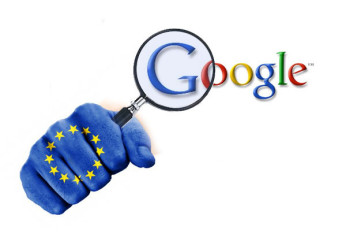By: Curtis Hazelton,
Is there a common place between security and privacy, and between data protection and freedom of expression; two schools of thought circling around the same idea of consumer protection.
As the Internet battles starring Taylor Swift and Nicki Minaj, and Drake and Meek Mill simmer down, a larger battle over internet control has been spotlighted. In recent months, there has been a standoff between the U.S. and the EU over internet governance. Since 1988 internet domain oversight power has rested in the hands of the U.S. Commerce Department.[1] This oversight has allowed the American government and businesses to enjoy the free penetration into multinational markets. While this may seem as a positive to Americans, the EU has voiced many concerns.
This battle, in the eyes of the EU, is not about internet control, but rather about creating a network of protection for all involved in international trade. The EU’s introduction of the Digital Single Market plan has been framed as an extension of the EU’s project to unite a patchwork of national economies, consolidating the regulatory maze of 28 member states into a simplified market.[2] Similarly in the field of taxation, this plan seeks to address any possible abuses by multinational companies, of tax minimization practices or of the European Union’s State Aid rules, regardless of where they are headquartered.[3]
In efforts to combat the negativity over the US’ control over the internet, the US and Europe have proposed a data transfer agreement that would allow companies to move digital information like people’s web search histories and social media updates between the European Union and the United States.[4] That agreement was ruled invalid by the European Court of Justice.[5] The agreement between these world leaders was flawed, according the European Court of Justice.[6] The Court explained its resistance to the agreement by stating that the agreement would allow American government authorities to gain routine access to Europeans’ online information. [7] By way of Edward Snowden, it was clear to the European Court that American intelligence agencies had almost unfettered access to the data, infringing on Europeans’ right to privacy.[8]
In the times of data leaks and aggressive ad tracking, is anyone safe anymore? Looking through the lenses of consumer protection laws and the right to privacy, it seems we should be.
[1] Hamza Shaban, U.S. Maintains Control Over Internet Governance For A Bit Longer, Buzz Feed News (Aug. 19, 2015, 8:03 PM), http://www.buzzfeed.com/hamzashaban/us-maintains-control-over-internet-governance-for-a-bit-long#.elePLm0Q.
[2] Hamza Shaban, Digital Single Market Isn’t Anti-American, Says EU Commissioner, Buzz Feed News (May 28, 2015, 5:23 PM), http://www.buzzfeed.com/hamzashaban/digital-single-market-isnt-anti-american-says-eu-commissione#.laaDkr1X
[3] David O’Sullivan, Stop the Hysteria. Of Course Europe Wants an Open Internet, Wired (Apr. 30, 2015, 11:00 AM) http://www.wired.com/2015/04/eu-ambassador-on-open-internet/.
[4] Mark Scott, U.S.-Europe Data Transfer Agreement Is Ruled Invalid, N.Y. Times, OCT. 7, 2015, AT B1.
[5] Id.
[6] Id.
[7] Id.
[8] Id.
Photo Source: http://www.searchgi.com/admin/assets-13//February-2014/google-vs-eu.jpg

